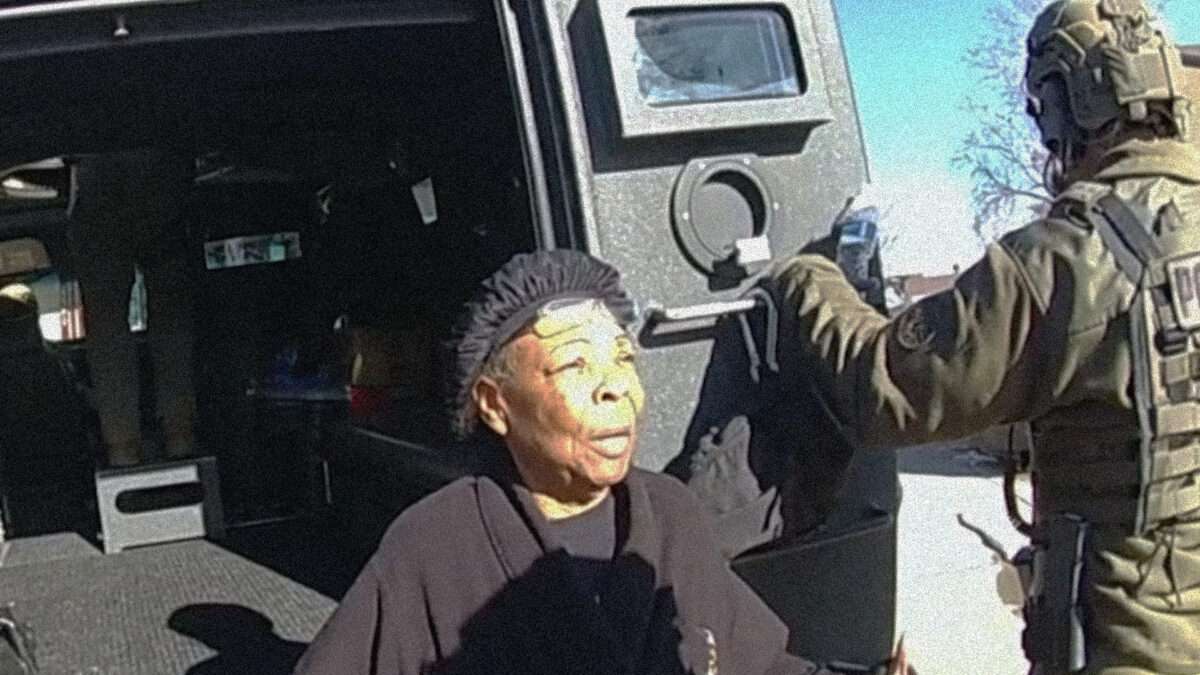This didn’t go the way anyone (other than cops and their unions) wanted it to, but first let’s acknowledge the fact that the city of Denver is actually trying to make things better for both cops and the people they serve.
Here’s how that’s going:
In its first three months, STAR handled 350 calls — only a very small percentage of 911 calls. But the immediate developments appeared positive. A supposed indecent exposure call handled by STAR turned out to be a homeless woman changing clothes in an alley. A trespassing call turned out to be another homeless person setting up a tent near some homes. Suicidal persons were helped and taken to care centers. Homeless residents were taken to shelters. No one was arrested. No one was beaten, tased, or shot.
The zero arrests streak continues. STAR has released its six-month report [PDF] and the calls it has handled have yet to result in an arrest, strongly suggesting police officers aren’t the best personnel to handle crises like these — unless the desired result is more people in holding cells.
Denver decided to try what (far too few) other cities are trying: routing mental health/social services calls to professionals in those fields, rather than hand them off to police officers. And for good reason! Police officers aren’t trained to handle these sorts of issues. That lack of training tends to result in arrests, violence, and even the killing of people police have been asked to help.
Denver’s STAR (Support Team Assistance Response) has been able to handle many calls normally routed to cops without deploying cop tactics: you know, the command-and-control aggression that often manages to make these situations worse, if not actually deadly for those requiring mental health assistance.
So, there’s that. A limited test has shown consistently good results, which should be all the argument Denver legislators need to provide funding to expand STAR assistance to a round-the-clock effort.
But that’s just Denver. Even though it’s the state’s most populous city, its success story has been overlooked by state legislators who apparently feel the best thing for cops is the same lack of accountability they’ve enjoyed for years.
Legislators had a chance to impose greater accountability, but decided to go the other way, as Marissa Ventrelli reports for the Denver Gazette.
A bill that would have required law enforcement agencies to investigate all allegations of officer misconduct died in the House last week following significant revisions.
Sponsors said the measure would increase protections for officers who report alleged misconduct by their peers. Critics, notably law enforcement agencies and organizations, argued the sponsors did not include them in discussions for such an important measure.
Under House Bill 1460 as introduced, the failure to investigate reports of misconduct would have constituted workplace discrimination, for which civil action may be initiated.
The bill’s origin story is one of cop-on-cop harassment. Former Edgewater police officer McKinzie Rees helped craft the bill after being sexually assaulted twice by a fellow officer. Reporting it to supervisors did nothing but force Rees to resign, along with being placed on the state’s Brady list, ensuring she’d never be used as a witness in court, no matter what law enforcement agency employed her.
But it had obvious benefits for regular people, too. It strengthened whistleblower protections for cops reporting on other cops, but also would have benefited citizens who’ve filed complaints by forcing law enforcement agencies to instigate investigations, rather than just ignore the complaints of the policed.
The main opposition was none other than the state’s largest police union. Police unions routinely oppose efforts that might result in more scrutiny of officers. In this case, though, the union opposed any additional scrutiny being applied to cops who attacked, harassed, or sexually assaulted other cops.
The Fraternal Order of Police requested sponsors withdraw the bill and to instead convene a working group during the interim to discuss a multitude of issues related to whistleblowing, such as officer obligation to report misconduct, due process for officers facing allegations by whistleblowers, and protections for the whistleblowers themselves.
“We hope that you will accept this offer to engage in research and dialogue over the summer and fall so that all interested parties can feel assured that any future legislation on these topics in the upcoming session is founded in fact, necessity, and effective collaboration,” the group said.
This makes it clear police unions are there to protect the worst cops — the ones willing to cross the “thin blue line” to harm other police officers. While everyone expects cops to treat citizens like punching bags and doormats, the “thin blue line” illusion is supposed to trick everyone into believing cops stand together united against evil. But if it’s internal evil, the police union wants nothing to do with any efforts to root it out. That’s just fucking disgusting.
And that’s how a bill dies, with the approval of people who think cops shouldn’t be scrutinized — much less punished — for any misconduct they commit, even if the targets of their wrongdoing are their fellow officers. These are the words of a legislator who seems more willing to provide gratis car washes for officers’ personal cars than serve any member of his constituency that can’t be bothered to get a badge-wearing job.
Rep. Ryan Armagost, R-Berthoud, a former law enforcement officer and member of the committee that heard the bill, said he was “offended” that law enforcement agencies had not been involved in discussions about the bill to the extent they wanted to be.
Here’s an idea, Rep. Armagost: fuck ’em. If these agencies want to be involved, they’re sure to be involved. All this statement means is this rep is offended someone didn’t ask the kind of cops he likes (which would be the kind that sexually assault fellow officers) what kind of legislation they wanted and instead tried to right some wrongs by offering the state’s sexual assault victims (well… at least those in uniform) some form of protection, redress, and deterrence.
And it was state reps like Armagost who got what they wanted by stripping the bill of anything meaningful and parking it on blocks out in the front yard. For those of you who still think there’s nothing partisan about full-throated support of the worst cops this nation employs, please re-read the second quoted paragraph until the truth sinks in.
By the time the bill reached the floor for its third and final reading, all of its major provisions had been amended out, save for the creation of a working group.
Ultimately, the bill died, 31-33. All of the Republicans, except Soper, voted in opposition, though it’s possible he would’ve asked for a recount and switched his vote if the bill had passed.
To add insult to the injuries suffered by former officer McKinzie Rees, the union added this statement after the bill was carved up by bootlickers and left to die on the House floor:
“We appreciate that the majority of House members shared our concerns about the need for a robust stakeholder process before passing legislation of this importance. Ensuring law enforcement employees have due process protection and a safe and healthy work environment are serious, complex issues that warrant responsible and thoughtful solutions.”
It pretty much makes you want to vomit. The union cheered on “due process” and “a safe and healthy work environment.” But it really doesn’t care much about the first (the bill only required an investigation to be opened, which means plenty of due process was still available to officers) and obviously gives zero shits about the latter, since it means officers attacked/assaulted by other officers will continue to be frozen out by the worst in their ranks and expected to leave the force, rather than see their grievances adequately addressed by the government agencies that hired them.







